
Transcription
UNIFORM COMMERCIAL CODESBringing Business to Indian CountryTribal Secured Transactions LawsA Working ForumSusan WoodrowCommunity Development AdvisorFederal Reserve Bank of Minneapolis/Helena BranchSponsored byThe Federal Reserve Banks of Minneapolis, Kansas City, and San Franciscoand theU.S. Department of the Interior’s Office of Indian Energy and Economic Development
AgendaMorning session Comprehensive Overview of SecuredTransactions Laws Secured Transactions Laws in Indian CountryTodayAfternoon Session State UCC Filing Office The Tribal Perspective Interactive Workshop- Reviewing Your Tribe’s Current LegalEnvironment for Secured Transactions- Developing an Implementation Plan
Barriers to Business in Indian Country Many contributing factors Differ from Tribe to Tribe, case-by-case Some commonly cited key contributors: Shortage of lending institutions in IndianCountry Poor credit scores Lack of banking experience Perceived or actual issues with tribal courts Incomplete, outdated or no tribal laws thatfacilitate financing; or lack of awareness aboutsuch existing tribal laws
Why is this a barrier? In business, rules are needed so that creditors (such as lenders and sellers of goods on credit)and debtors (businesses and consumers) knowwhat to expectNo rules or unfamiliar rules uncertaintyUncertainty risk increased cost or no dealThe same is true with doing business in Nativecommunities - the “rules” are necessaryLaws are the rules; they are necessary forcommunities to effectively support businessactivities
Tribes’ general right to govern business in theirjurisdictions Commercial codes govern many aspects of businesstransactions in state jurisdictions For all states and several U.S. territories, many ofthese laws constitute and are commonly referred toas the Uniform Commercial Code (UCC) As a matter of sovereignty, Tribes generally have thesame right as states to establish similar laws thatgovern commerce/business within theirjurisdictions – this is also true for Tribes in PL 280states
What is the Uniform Commercial Code? UCC was drafted by the Uniform Law Commission(ULC) and American Law Institute (ALI) during the1940s and 1950s – a set of model codes to aestablish a reasonably consistent legalenvironment for commercial transactions amongand between businesses and consumers acrossstate lines The UCC is a set of template codes developed as aresource for use and enactment by statelegislatures UCC been enacted by all 50 states and some U.S.territories - not exactly uniform but substantiallyuniform
State of Tribal Commercial Law Today Have Tribes enacted these kind of laws?Some have, but with little consistency from Tribeto Tribe What if a Tribe has not adopted these types oflaws?State law typically fills the void, but often withoutcertainty and with a great deal of confusion
Why did the States Adopt the UCC? Economic development: Non-uniformity among statelaws was hindering “cross-border” commerce, thusinterfering with economic development Sovereignty: Concern by states for potential federallegislative intervention/preemption if states did notact to address the non-uniformity issue Now, substantial uniformity among the states’commercial laws, including those governing securedlending, permits ease of transactions across statelines, enabling efficient “cross border” commerceAre there similar concerns about economicdevelopment and sovereignty in Indian Country?
12 Articles of the UCC Article 1 Article 2 Article 2A Article 2B Article 3 Article 4 Article 4A Article 5 Article 6 Article 7 Article 8 Article 9Definitions and General RulesSalesLeasesLicensesNegotiable InstrumentsBank CollectionsFunds TransfersLetters of CreditBulk SalesDocuments of TitleInvestment SecuritiesSecured Transactions
Secured transactions legal developmentsaround the wo
Commercial codes govern many aspects of business transactions in state jurisdictions For all states and several U.S. territories, many of these laws constitute and are commonly referred to as the Uniform Commercial Code (UCC) As a matter of sovereignty, Tribes generally have the same right as states to establish similar laws that
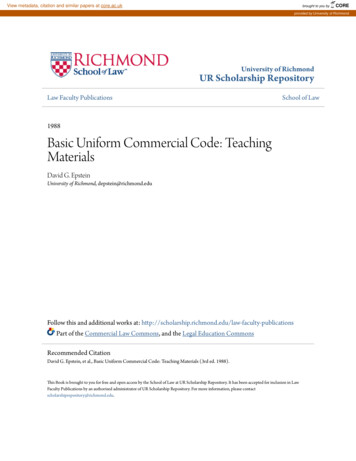

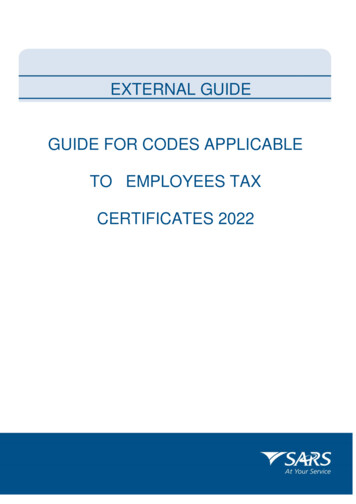
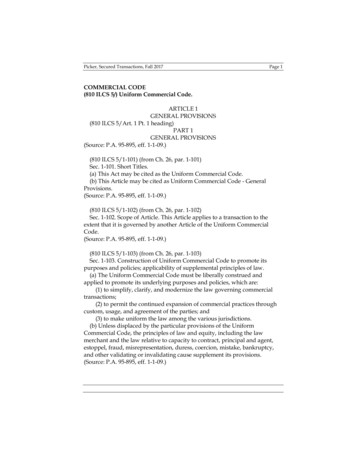
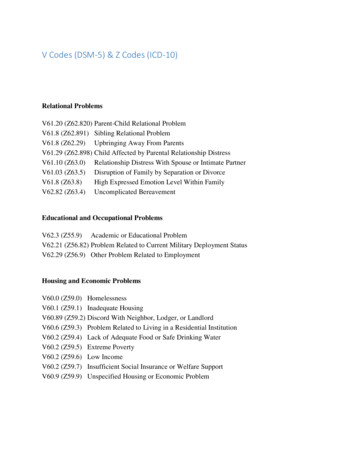
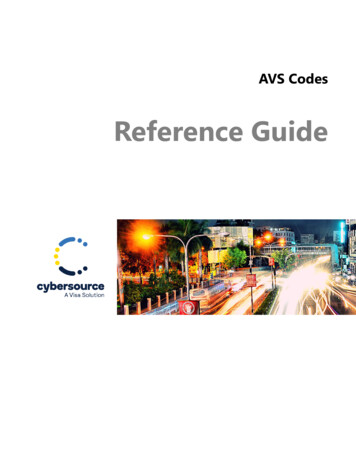


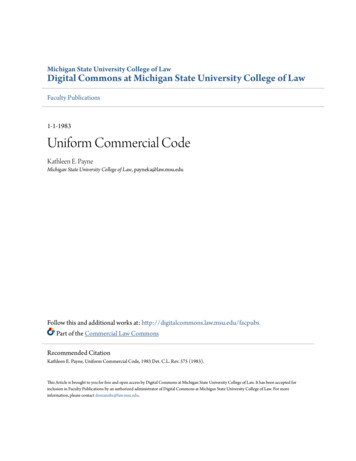
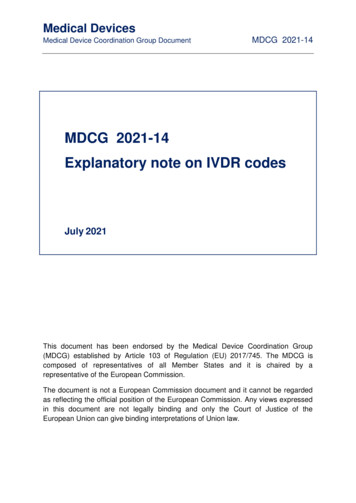
![Solar Code Development v2.5 [Read-Only]](/img/63/solar-20code-20development-20vfinal.jpg)